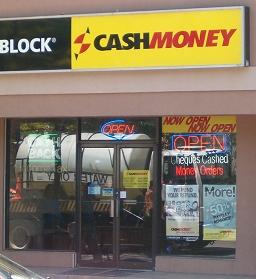Misplaced Pride
I went to a dinner recently in honour of the retirement of my mother-in-law and about 50 other employees of the Hamilton-Wentworth Catholic District School Board. In addition to the excellent food there were the usual longwinded ramblings of the Master of Ceremonies, who began the evening by playing an audio-visual tribute to Canada.
This piece consisted of someone singing something about Canada accompanied by slides showing images of this country. Except for a picture of the CN Tower and a night-time shot of Vancouver, all the pictures were of the natural Canadian landscape – mountains, forests, icebergs and ocean.
Afterwards, the room erupted in vigorous applause as we basked in pure pride of country. We Were Canadian.
But does our pride in our geographical heritage actually make sense? After all, it’s something no Canadian can claim as an accomplishment. Could our reliance on pride in geography and the maintenance of national myths – that we are environmentally progressive, for example – be a symptom of declining pride in what really defines a nation: our society, culture and accomplishments?
Canada’s land – our territory – is the result of some people getting together with a map and drawing lines on it. These lines encompass a lot of stuff, and it just so happens that we were born inside these lines (or crossed the lines to get here). Now we share space with some mountains, some trees, some tundra, and a whole lot of water.
Instead of feeling like we won the geography lottery, we look at this as an enormous accomplishment. But we didn’t build the Rocky Mountains, dig the Great Lakes or grow our magnificent forests. In fact, we’re busy strip-mining our mountains, bottling and selling our water, and cutting down our trees – all good indications that even if we could have built the geography of our land we probably would have just sold the raw materials instead.
National pride because of lucky circumstance is misplaced. Well-placed national pride is pride that is rooted in a country’s accomplishments, its society, and its culture. That we fall back on our geography as a source of pride is perhaps no surprise then, because in Canada these rarely well-defined national characteristics are eroding.
We have universal health care, except that it’s in such bad shape the Supreme Court has said mandating its use violates our guarantee to “life, liberty and security of the person” in the Charter. We have a democracy, except that we make no demands of our politicians to show vision, leadership, or ethics. We have a vibrant economy, except much of it is based on the exploitation of our natural environment. It’s little wonder that our national pride is based on slogans designed to sell more beer or our supremacy in hockey.
As our national pride declines, regional and local pride increases. Quebecers are proud of their unique society and resurgent separatism indicates that many see no need for it to be Canadian. Albertans are proud of their booming economy and resentful of the monopoly Quebec and Ontario hold on the federal government. A recent article in the Toronto Star detailed the freedom and acceptance gay couples enjoy in Toronto, but the featured pair, two men from Brazil, spoke of how that acceptance didn’t extend to small towns in northern Ontario.
So what is the thread that ties together all Canadians? One person I spoke to on the weekend said “diversity”. But is an agreement to disagree really much of an agreement at all? Another person said they felt that Canadians quietly shared truths instead of openly flaunting beliefs. But are these shared truths uniquely Canadian, or do they extend across borders, uniting residents of British Columbia and Washington State more than people from British Columbia and Quebec?
It’s easy for young Canadians to forget the youth and thus the fragility of this country, it’s easy for liberals to dismiss the millions of Canadians who are conservatives, it’s easy to ignore the “centrifugal forces” that continually tug at our unity and it’s easy to put municipal, local and regional concerns ahead of our country. But if we do, we may lose the opportunity to forge a uniquely Canadian society, something we can all be proud of.
One of the people I talked to about this at a weekend party came up to me a couple of hours later as I was leaving. “I’ll think about that question and get back to you”, he said. “What question?” I asked. “You know”, he said, “how to save Canada”.
Let me know if you have any ideas!




 twitter.com/adriandz
twitter.com/adriandz
